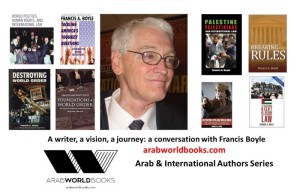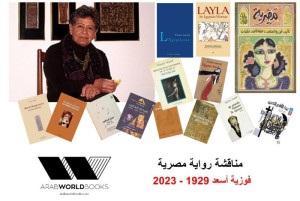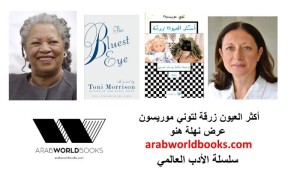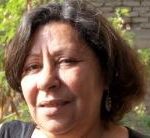That evening, just like every evening, the thin, pale man with the strange fingers came and sat down on the same stone bench. His eyes stared at the same spot, their grey pupils circling and shifting within a small sphere, contemplating one and the same thing. He sat in solitude: hermitlike, distracted.
The first time she saw him, he exchanged a very few words with her, on the subject of music. He did not take notice other again. It didn't appear that he knew her nor did he exchange a single word with her.
Said came.
She got to her feet, joining him, and they left the place. They walked a little way and turned off towards the bridge. Nothing there but the river. Soon he began to talk. He spoke of many things: of his friends, his mother and father, of work and exhaustion and loneliness and the world, and of love. Only then did he tell her that he loved her, after he had told her all the first and rudimentary things, looking at her questioningly all the while.
When she did not respond, he asked, 'Aren't you going to say anything'?
But the river was alone there.
She told him then that talking about love was foolish, and futile in times like these.
She talked to him about herself.
She told him that her first relationship with a man had been bad. From the first day, she had known that it would end, but she hadn't resisted, until things reached a critical point. On that same day, she put an end to it all.
'I loved a man once,' she told him. 'And he loved me, and everything was lovely, it was really good, and there was nothing at all that could have interrupted it, nothing to raise any doubts'.
'Then what?' he asked her.
'Nothing'.
'Why did you leave him'?
'I didn't leave him'.
'He left you'?
'No, that didn't happen either'.
'Then, what did happen'?
'I don't know'.
She had sunk into gloom. She slowed down and her hand stiffened and contracted. They walked on in silence. Finally, she said that she wanted to go back.
Later she was sitting with her women friends. They were talking about the monster like a mermaid in reverse which had appeared in the Yemen. One of her friends was describing the mermaid's legs and knobbly knees, and then her body, and her head which resembled that of a fish. Then they talked about spirits and djinnis and told the latest anecdotes about them; they spoke of the most recent things they had done.
'Signs of the Day of Reckoning,' said one.
She wandered through some streets, very dark streets. She pondered on why she didn't believe these stories. She told herself that death was unbelievable, but that it happened. She didn't know what truth was and she felt afraid of the darkness.
Early in the morning she was sitting on the bank of the Nile, a book between her hands. She began recalling the first days of love. She had been young and impressionable, and naive, but everything had been fun and beautiful. It was, in fact, a situation that she thought could be likened to learning one's bearings, navigating the ways of the city. At first, she had got lost frequently while walking the streets of downtown Cairo. She'd circle round and round, wandering all over, until she came out into a place she knew.
Later on, she got to know one particular street well and, whatever street she was on, she would head for that one street. Still later, she became familiar with all the streets and came to know them perfectly. Today, not a byway or main street existed that she didn't know, but often she would hope to get lost. Losing one's way was a very good experience indeed, and a real pleasure, especially since it was an ability that she had lost entirely.
She thought of the mermaid which she found utterly bewildering. The old man came. He sat down. He appeared to her to be in another world, and it seemed that long days had passed since she had last seen him. His eyes were small and light-coloured. Whenever he had come to mind, she hadn't been able to remember the true colour of his eyes. She resolved that some day or other she would follow him to wherever it was that he came from.
He was clutching some papers through which he began to riffle. She tried to focus her eyes on them but she couldn't make out anything. Time passed as she observed him and watched the skiffs and saw the Cairo Tower, the Andalus Park and the motor cars on the bridge.
Said came. They sat in silence. After a short while, the old man arose from his place. She got to her feet.
'Where to?' asked Said.
'Come on, let's walk a little,' she said.
They walked.
'I brought you some sweets,' she said.
In a short while she began to laugh and joke quickening her walk, sometimes so much that she was running. And then she would come to a stop, gazing at people and looking at the river and the trees. They sat down in a quiet place.
'What's wrong?' he asked her.
'Nothing.' After a pause, she said, 'I don't know, something will certainly happen, and when it does, everything will be clear'.
They walked on, in some tension. He walked her home and she went to bed and slept. That night, she dreamed that she was going out secretly to meet him, but some woman - or maybe it was a man - saw her, and then she hadn't known what to do. She had slapped him on the back and he had fallen over dead. She had felt very afraid, she had felt regret and confusion, she hid in a hollowed-out place so that no one would discover her. But they found her and took her away in a closed vehicle. It shot off at great speed as she wondered: why did this happen? and what are the real reasons behind it? But she couldn't think of any, and now she would be either hanged or imprisoned. She had no idea how she would endure either one. She felt that she had been treated unjustly and wronged limitlessly, and she thought she had done no wrong.
Finally, she awoke. She felt as if many things were being consumed by fire. She went out into the street, not knowing what to do. She imagined that if she saw him now she would throw herself into his embrace, and cry and cry, while he would gently pat her on the back. He would know everything and he wouldn't ask questions or blame her.
She went to Tahrir Square,* ascended the steps to the pedestrian bridge which encircled the vast roundabout, walked around it several times. She felt tired, and thought about sitting on the steps. She descended and walked to the corniche. The old man was sitting there reading a small book.
She wished she could sit beside him and read with him. She longed for him to read to her in a calm and sympathetic voice, while she listened to him and gazed at the water, not saying a word.
After a time he got to his feet. She walked behind him. He took the bus, and so did she. He got off at one of the bus stops along the route, and she got out behind him. He crossed the square and turned off into a narrow street, then entered an area to which she had never been, one full of alleys, cul-de-sacs, and crowded, narrow streets. He went on, walking down one street, only to turn into another. Finally he came to an old house, its facade a faded yellow. Going down a few steps, he reached a doorway and went in. The interior was full of darkness.
She gazed for a while at the dark entryway before turning to go back. She discovered that she had forgotten the way she had come. She wandered through the small streets and alleys until she came out into the square.
She took a deep breath, filling her lungs, and gazed at the vast sky and the light encompassing the square at midday. She resumed walking, briskly now, smiling at everything and everybody. She looked at her watch; it was almost time for her appointment with Said. She found that it wasn't even particularly important to her. She stopped in a crowded spot, shading her eyes from the sun. At that moment, as her watch ticked on at its regular pace, she tried to recall the features of the old man. She tried very hard but she could not.
*NOTES
Title note: 'Al-Bahth 'an mataha', published in the author's short-story collection An tanhadira al-shams, GEBO, Cairo 1985, pp. 59-65. Also in Edwar al-Kharrat (ed), Mukhtarat: al-qissa al-qasira fi'l-sab 'inat, Matbu'at al-Qahira, Cairo 1982, pp. 75-9.
Tahrir Square: 'Liberation Square', a main traffic roundabout and orientation point in downtown Cairo, named this after the 1952 revolution. It has recently been renamed Sadat Square, but is still known and referred to as Tahrir Square.
Translated by Marylin Booth, in her My Grandmother's Cactus: Stories By Egyptian Women, pp. 160-165
translated by Marilyn Booth
In Search Of A Maze
By: Sahar Tawfiq - on: Saturday 21 October 2017 - Genre: Stories
Upcoming Events

Joseph Conrad's Heart of Darkness Discussion
April 27, 2024
Join us for a special discussion of Joseph Conrad&...

A writer, a vision, a journey: a conversation with Francis Boyle
February 24, 2024
This event took place on 24 February 2024 Yo...

Discussion of Fawzia Assaad’s An Egyptian Woman
November 25, 2023
In celebration of the life and outstanding achieve...

Toni Morrison's The Bluest Eye, A Presentation and Discussion
October 28, 2023
This presentation and discussion of Toni Morrison&...
